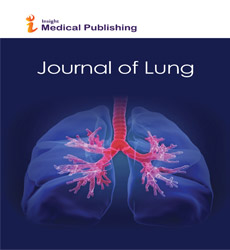Association and Management of Pre-Existing Lung Disease With Covid19
Abstract
The severe acute respiratory syndrome coronavirus-2 emerged as a serious human pathogen in late 2019, causing the disease coronavirus disease 2019 (COVID-19). The most common clinical presentation of severe COVID-19 is acute respiratory failure consistent with the acute respiratory distress syndrome. Airway, lung parenchymal, pulmonary vascular, and respiratory neuromuscular disorders all feature in COVID-19. People with pre-existing respiratory disease had a modestly increased risk of severe COVID-19. People with asthma had an 18% increased risk of hospital admission with COVID-19, but there was no evidence that asthma was associated with an increased risk of death. Even in people with asthma who were prescribed three or more airways medications, the risk of death was modestly raised at worst compared with people without respiratory conditions. In the whole population, COPD was associated with a 54% increase in the risk of hospitalisation or death. The risks in people with bronchiectasis were modestly above one, although they were imprecisely estimated for death. Cystic fibrosis was too uncommon to estimate risks with precision, and no one with cystic fibrosis died from COVID-19. Interstitial lung disease was associated with an increased risk of severe COVID-19, while lung cancer was associated with a near doubling of severe COVID-19. COVID-19 vaccines (initial doses and boosters) and preventive measures for COVID-19 are important. Approved and authorized COVID-19 vaccines (initial doses and boosters) are safe and effective and should be administered to people at higher risk including people with underlying medical conditions. Older adults are more likely to get severely ill from COVID-19. More than 81% of COVID-19 deaths occur in people over age 65. The risk of severe COVID-19 increases as the number of underlying medical conditions increases in a person. Long-standing systemic health and social inequities have put various groups of people at increased risk of getting sick and dying from COVID-19. The most important thing is to keep control of your condition. Keep taking your medicine. Never stop or change medications without talking to your doctor first. Rescue drugs like bronchodilators donâ??t affect your immune system. If you have an asthma flare and need to use medicine, an inhaler is best. A nebulizer might spread the virus through the air if you use it while youâ??re sick. If you must use a nebulizer, do it in a room by yourself. Patients with hypoxaemic COPD and COVID-19 should be given controlled oxygen therapy as the first step.18 If hypoxaemia is insufficiently controlled with maximum oxygen supplementation, high-flow nasal cannula (HFNC) or CPAP with high oxygen flow should be considered. HFNC has recently been suggested as a management option in patients with COVID-19 with acute hypoxaemic respiratory failure.
Open Access Journals
- Aquaculture & Veterinary Science
- Chemistry & Chemical Sciences
- Clinical Sciences
- Engineering
- General Science
- Genetics & Molecular Biology
- Health Care & Nursing
- Immunology & Microbiology
- Materials Science
- Mathematics & Physics
- Medical Sciences
- Neurology & Psychiatry
- Oncology & Cancer Science
- Pharmaceutical Sciences
